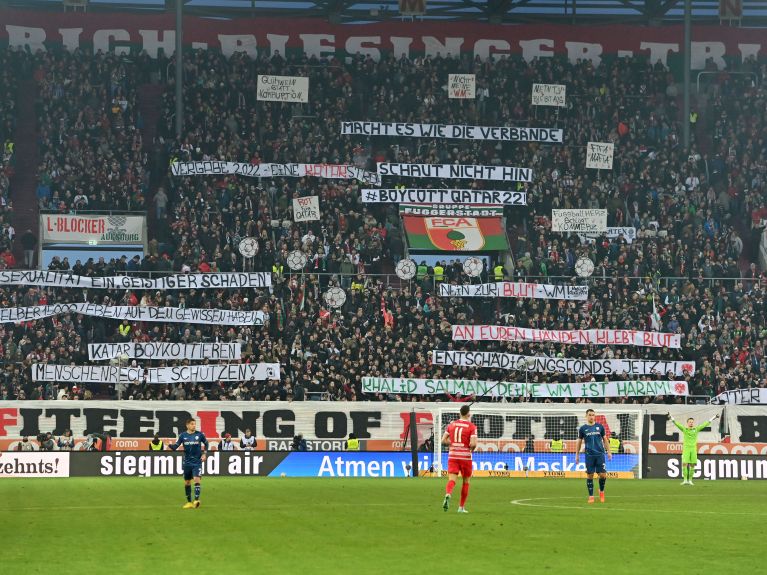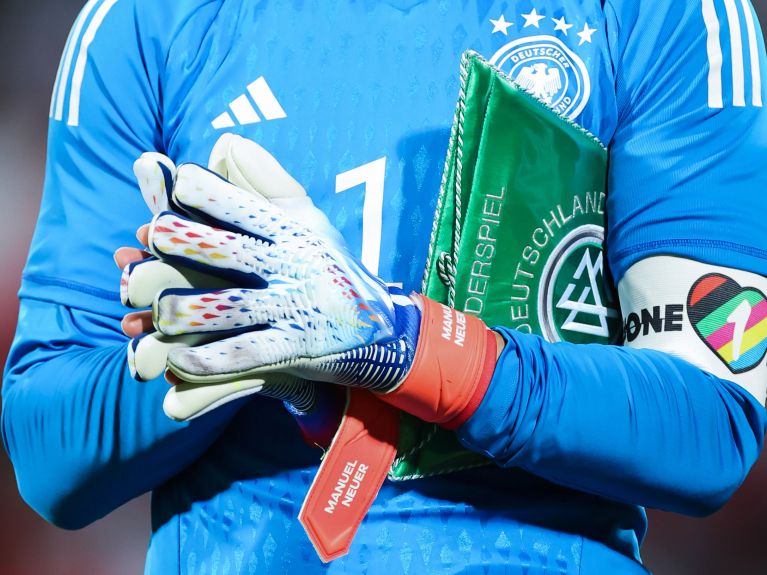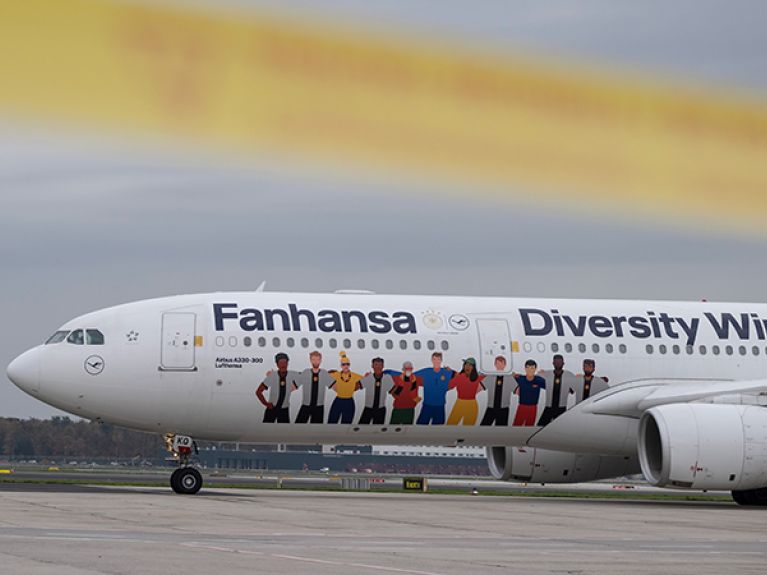Doubting football nation
The World Cup in Qatar has been overshadowed in Germany by discussions about human rights and anger at Fifa.

When it comes to sport, Germany is a football nation. The German Football Association is the largest association in the world, boasting more than 7 million members and 2.2 million organised players in more than 24,000 clubs. Football is the most popular sport on television, especially when the national teams are playing in a World Cup. But this time at the Men's World Cup in Qatar things have been different - at least so far. A survey among fans showed that more than half of the respondents planned to watch "no game at all". Even though such figures may change in the course of the tournament, and certainly depend on the success of the German team, Germany has never seen anything like this before.
In another survey, two-thirds thought it was rather or clearly wrong for the World Cup to be held in Qatar. This coincides with the visible and vociferous protests of many fans in German stadiums during Bundesliga matches before the WC.
Human rights debate overshadows sport
There are many reasons for this mood, but the most discussed is certainly the human rights situation, especially the oppression of the LGBTQI+ community and the legal ban on homosexuality in Qatar. In addition, there are the living conditions of the workers on the World Cup construction sites, which have been dangerous for many years, but which, according to the International Labour Organisation (ILO), have recently improved considerably, in part owing to international pressure. But the unusual timing in the German winter, precluding the popular summer fan festivals and public viewing events, the weariness with the scandal-ridden world football association Fifa, the uncertain world situation, the energy crisis and inflation are also contributing to the reluctance to follow the WC.
Foreign Minister Annalena Baerbock gives voice to what most people in Germany are probably thinking when she underlines the paramount importance of human rights on the one hand and expresses understanding for the situation of the athletes on the other. "Our world is based on human rights and that is why human rights are indivisible. That applies to climate conferences just as much as it does to major sporting events", said the former competitive athlete. At the same time, she added, "when athletes take part in such events, they must not be punished for other things going wrong politically. And that's why I'm keeping my fingers crossed, of course, and not just for the German team, but for everyone", because "I'm a big football fan". This she also has in common with many Germans.

Unpopular world federation Fifa
To join in and protest is also the attitude of the DFB. The plane in which the national team flew to neighbouring Oman for preparations was emblazoned with the message "Diversity Wins". The DFB, however, along with six other European associations, failed to push back against Fifa's resistance and acquiesced in not having its team captain wear an armband with the slogan "One Love". Fifa had banned the in itself innocuous slogan and threatened those who violate the ban not only with fines but, according to the DFB, with "massive" consequences. The national player Leon Goretzka says: "As a team, we welcome every sign in favour of diversity and against discrimination. We don't want to build rifts, but bridges. Precisely symbols like our captain's armband should point the way and contribute to dialogue." Fifa's already bad reputation in Germany has been completely ruined by its policy. The Süddeutsche Zeitung, for example, writes of "methods as in a gangster film", and one of Germany's largest retail groups immediately stopped its advertising with the DFB. Corruption has also been suspected in the awarding of the 2006 World Cup to Germany, but the awarding of the World Cups to Russia in 2018 and Qatar in 2022 were an even lower mark in the sad "normality" of Fifa’s corruption.

DFB supports Nepal
Since then, the DFB has since undergone a quite painful and often chaotic act of self-purification - and it now stands firmly for the rights of minorities and exploited workers. In Qatar, DFB President Bernd Neuendorf presented a project in which 200,000 euros from the national team's foundation will benefit an SOS Children's Village for orphans in Nepal in each of the next five years. Many workers come to Qatar from that country. The project is about improving the conditions of the people in Nepal and thus preventing a new generation of labour migrants, said Neuendorf.


